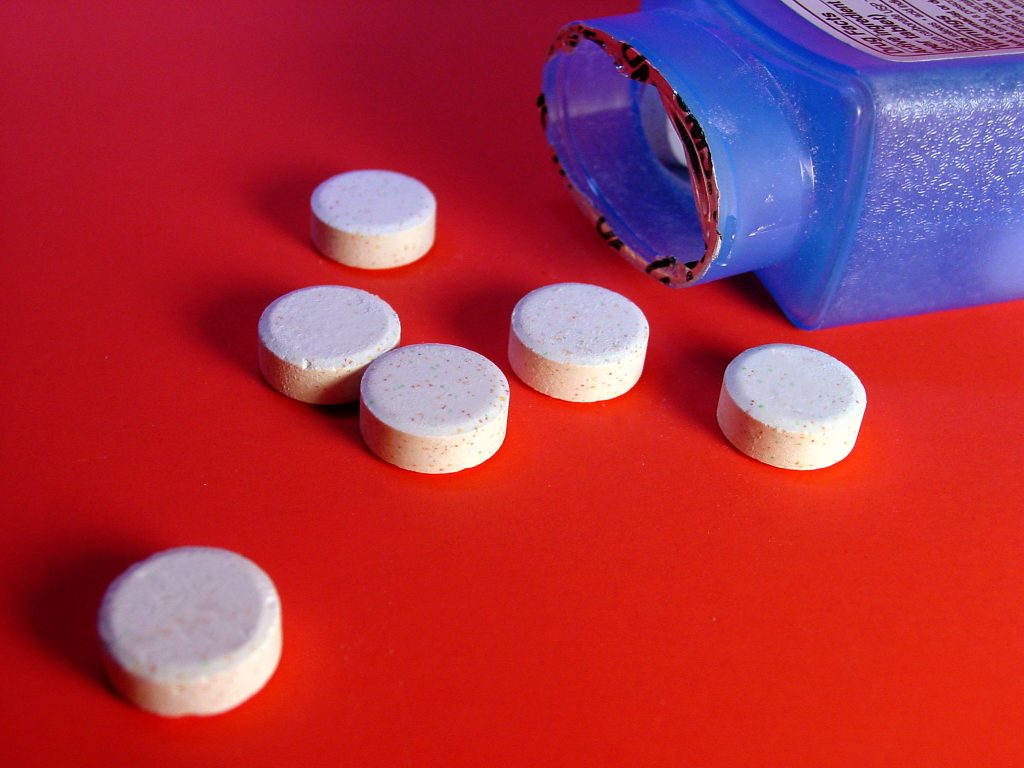
Do you experience frequent heartburn, reflux, or discomfort after your meals? Have you been diagnosed with gastroesophageal reflux disease (GERD) or prescribed a proton pump inhibitor (PPI) like Prilosec or Zantac? Do you eat Tums like candy? Do you feel like you’re on a never-ending cycle of taking the meds, having symptoms, taking the meds, and having more symptoms?
PPIs do lower stomach acid, but for some people the problem is not too much acid, its too little acid. We need acid in the stomach to help break down food for digestion. When you have too little acid, the sphincter (think valve) at the bottom of your esophagus doesn’t receive the signal to close properly. Food ends up sitting in the stomach and taking longer to break down, causing reflux, indigestion, feeling overly full, and/or bloated.
Taking medications that further lower stomach acid are just slapping on a quick bandaid and ignoring the underlying issue. Long-term use of antacids have been linked to mineral deficiencies and intestinal bacteria overgrowth. Once you’ve started taking an antacid, it’s common to just keep taking it year after year without thinking about the real cause of your symptoms.
If you suspect that your body is producing too little acid, try taking one tablespoon of raw apple cider vinegar (ACV) with your meals to see if it improves symptoms. You could also try taking a tablespoon of ACV in the middle of a heartburn episode. If it works, you know the underlying issue.
More Causes of Reflux
Stress
Stress lowers acid production. Digestion is not a top priority when the body is stressed, so it diverts blood and energy away from the gut to feed the muscles and the brain.
Eating too rushed
Do you always eat standing up or in your car? Does it take you 10 minutes or less to finish a meal? Do you notice your symptoms more when you have a busy day at work (or only notice them in the evening when you finally get a chance to sit down)?
Eating too late or too much
You can’t eat a huge meal late in the evening then lie down shortly after and expect your body to easily and properly digest it. Make sure you are evenly spacing your meals throughout the day to keep you from getting overly hungry in the evening.
Lack of Sleep
When you are not properly rested, your body can’t function in the best way possible. Simple as that!
Caffeine
Caffeine relaxes the sphincter in the esophagus whose job it is to keep stomach acid where it’s supposed to be. Symptoms vary per individual, but other common foods that do this include spicy foods, garlic, citrus, peppermint, and chocolate. Not to mention, it can mess with restful sleep!
Natural Remedies for Reflux
What you put in your body is what you get out. Taking a pill for the rest of your life may sound easier than making a change in what you eat or your lifestyle, but for most people it will not fix the underlying cause of your symptoms.
Create some headspace. I don’t care how busy you are, you can find 10 minutes somewhere in your day to help manage your stress. Practice taking 10 deep breaths, rest for 30 seconds, and repeat. Try downloading an app like Headspace or Calm to get a meditation routine started.
Slow down! Eating your food too fast means you are probably eating too much, leading to feeling overly full and uncomfortable. Taking smaller bites helps the digestion process begin.
Eat more foods with probiotics like yogurt, kefir, kimchi, and kombucha.
Eat foods with natural digestive enzymes like pineapples and papaya.
Aloe vera juice (2-4 ounces per day)
Ginger tea (helps with digestion)
Marshmallow root (available as a tea or in capsule form)
Betaine HCl (supportive stomach acid supplement, a short-term solution for low stomach acid production)
Caution: Do not stop taking PPIs cold turkey. Work with a registered dietitian or physician who is familiar with treating reflux to create a plan to wean off of your medication.
